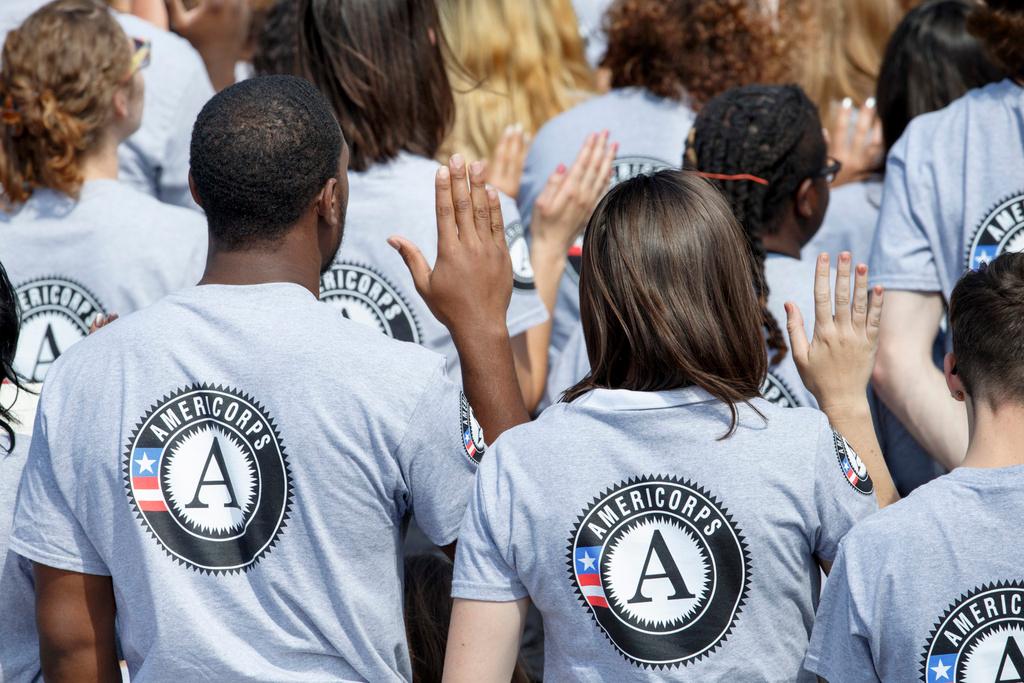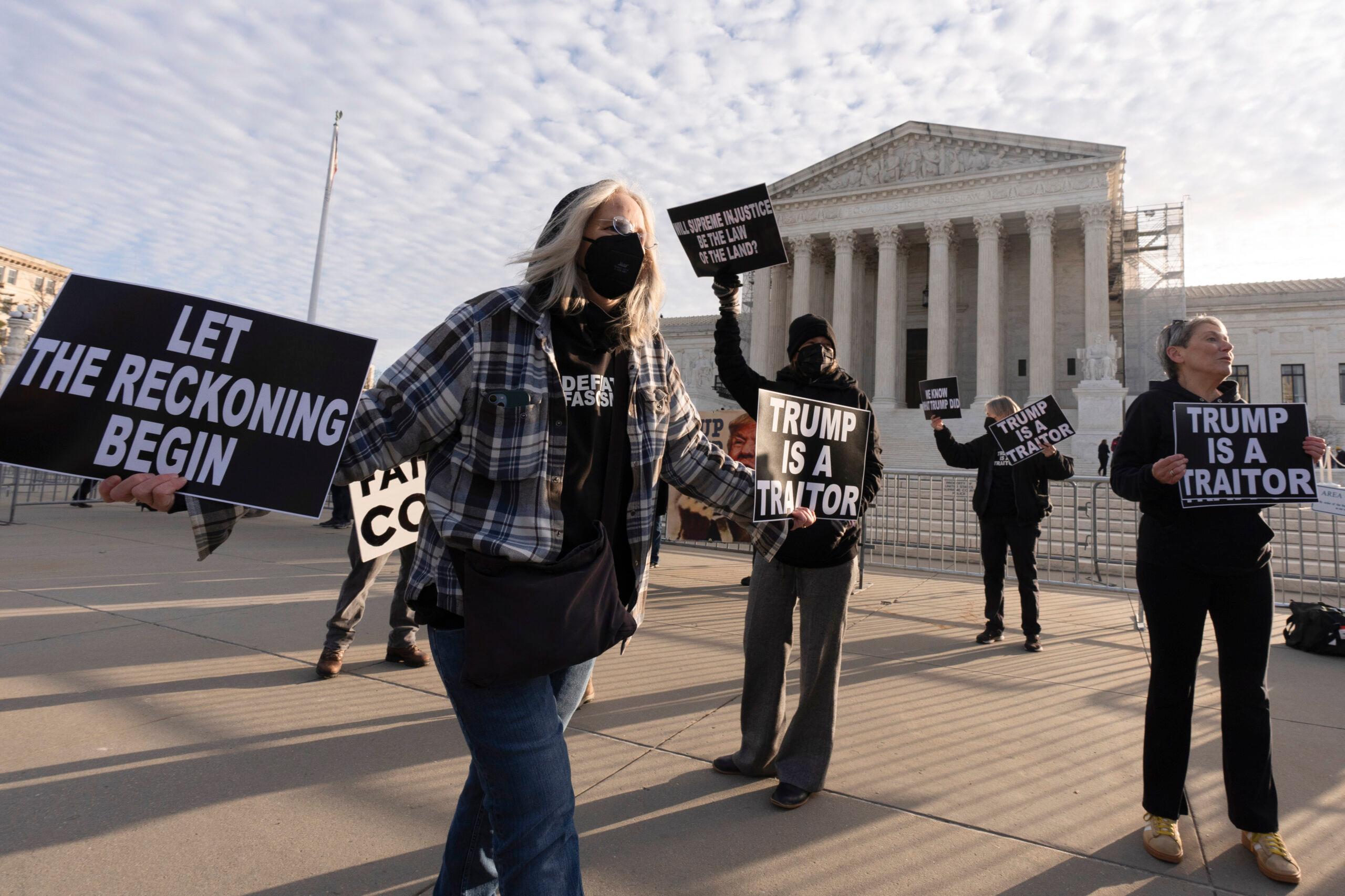
Updated 4:30 p.m. Feb. 8, 2024
The U.S. Supreme Court seemed poised to reverse Colorado’s Supreme Court decision to disqualify former President Donald Trump from state primary ballots.
During oral arguments Thursday morning, justices on both sides of the ideological spectrum appeared skeptical of arguments that Colorado has the power on its own to make such a consequential decision for the country.
In a hearing lasting more than two hours, U.S Supreme Court justices heard arguments in the unprecedented case that seeks to declare former President Donald Trump ineligible from holding office again.
Six Colorado voters, a mix of Republicans and unaffiliated, filed a lawsuit last fall, arguing that under Section 3 of the 14th Amendment, the former president committed insurrection and is ineligible of holding elected office again. In December, the state Supreme Court agreed with them and ruled that Trump can not run in Colorado.
The case hinges on a scarcely used constitutional provision, one that bars former office holders who have engaged in insurrection or rebellion from holding public office.
During the U.S. Supreme Court hearing on Thursday, the justices didn’t debate whether Trump, himself, engaged in insurrection.
But based on the arguments, the justices could rule that Section 3 doesn’t apply to Trump, or to the presidency as a whole; that Colorado’s courts don’t have the authority to disqualify federal candidates; or that Colorado was indeed in the right when its high court found Trump ineligible to run.
The justices seemed particularly skeptical of Colorado’s legal authority to disqualify a presidential candidate, implying that allowing one state to decide who appears on its ballot could rapidly lead to partisan abuses.
“I would expect that a goodly number of states will say, ‘Whoever the Democratic candidate is, you're off the ballot,’ and others, for the Republican candidate, ‘You're off the ballot.’ And it'll come down to just a handful of states that are going to decide the presidential election,” said Chief Justice John Roberts. “That's a pretty daunting consequence.”
Justice Brett Kavanaugh pressed Jason Murray, the Denver-based lawyer making the case for the Coloradans. Given how vague some of the language of Section 3 is, Kavanaugh asked whether it’s in the best interest of the country for the court to think about democracy as a whole.
“Think about the right of the people to elect candidates of their choice, of letting the people decide,” he told Murray. “Because your position has the effect of disenfranchising voters to a significant degree, and should that be something, does that come in?”
Justice Elena Kagan, one of the court’s liberal members, had a similar concern: “Why should a single state get to decide who gets to be president of the United States?”
Kagan said it was a national question and suggested enforcement of the Insurrection Clause would need to be national in scope.
The court’s newest member, Justice Ketanji Brown Jackson, questioned whether the Insurrection Clause of the U.S. Constitution applied to the presidency at all.
Specifically, she pointed to vague language used in the section, asking whether an “officer of the United States” is someone who simply takes an oath to uphold the constitution, which could include the president, or if it only pertains to lower offices, like Congress.
Section 3 includes a long list of elected positions it applies to, stating: “No person shall be a Senator or Representative in Congress, or elector of President and Vice-President, or hold any office, civil or military, under the United States, or under any State.”
But it does not, specifically, say president and vice president.
Attorneys representing the Coloradans said it’s just not believable that the drafters of the amendment would intend for the word “officer” to include the highest office in the country, but Jackson in particular pushed back hard on that point.
“Why didn't they put the word ‘president’ in the very enumerated list in Section 3?” she asked, adding that she found this fact troubling. “(They were) listing people that were barred, and president is not there? And so I guess that just makes me worry that maybe they weren't focusing on the president.”
To make their case, lawyers for Trump looked to a 155-year-old decision
For their arguments, Trump’s attorneys relied heavily on an 1869 circuit court ruling, known as “Griffin’s case,” in which the judge concluded that Section 3 can’t be applied unless Congress has already passed legislation to implement it.
The Griffin’s case decision came in an appeal attempting to overturn a criminal conviction on the grounds that the lower court judge hearing the case had been a Confederate legislator and wasn’t qualified to hold his current office under Section 3. But the circuit court judge rejected that claim.
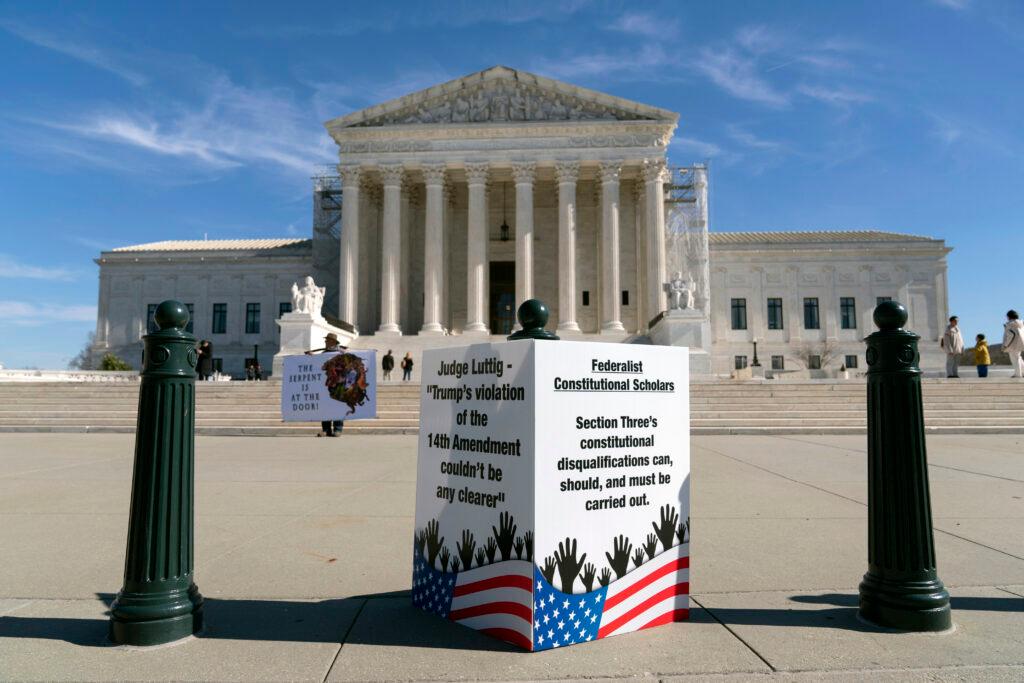
Trump’s attorney, Jonathan Mitchell, the former Solicitor General of Texas, said Griffin's case was correctly decided.
Mitchell told the Justices that if the Supreme Court adheres to that earlier decision, “there would not be any role for the states in enforcing Section 3, unless Congress were to enact a statute that gives them that authority.”
Justice Sonia Sotomayor pushed back on the importance of Griffin's case, noting that it doesn’t carry the same weight of precedent as a Supreme Court decision.
“So a non-precedential decision that relies on policy, doesn't look at the language, doesn't look at the history, doesn't analyze anything (other) then the disruption that such a suit would bring, you want us to credit as precedential?” she asked.
Attorneys for the Coloradans who initially filed the case argued that Section 3 is “self-executing” and requires no act of Congress, or any other governing body, to take effect.
In briefs submitted ahead of oral arguments, they noted that Jefferson Davis, the former president of the Confederacy, was automatically excluded from running for president after the Civil War because he was deemed an insurrectionist without ever formally standing trial.
But other justices seemed receptive to the idea that Section 3 requires implementing legislation. Justice Brett Kavanaugh and Justice Samuel Alito said that Griffin’s case has been the historical practice for 155 years.
“There haven't been state attempts to enforce disqualification under Section 3 against federal officers in the years since,” said Kavanaugh. He asked Mitchell if the entire Colorado ballot argument could hinge on this 1869 decision.
“If we agree with you on Griffin's case and what you've elaborated on there, that's the end of the case, right?” he asked.
“It should be, yes,” said Mitchell.
Justices turn a skeptical eye on arguments from Colorado
To open his case Thursday, Murray, the attorney representing the Coloradans, said: “for the first time in history, the attack was incited by a sitting president of the United States to disrupt the peaceful transfer of presidential power.”
In his argument, Murray attempted to give deference to the highest court, urging them to decide the case now, rather than follow the argument put forth by Trump’s representatives that Section 3 can’t be applied unless Trump is re-elected this November.
Murray said waiting to act until after tens of millions of Americans have voted would be a “constitutional crisis” and he told justices they have the power to further define what an “insurrection” is so it wouldn’t be used frivolously to try to knock out political foes or tar actions people may disagree with.
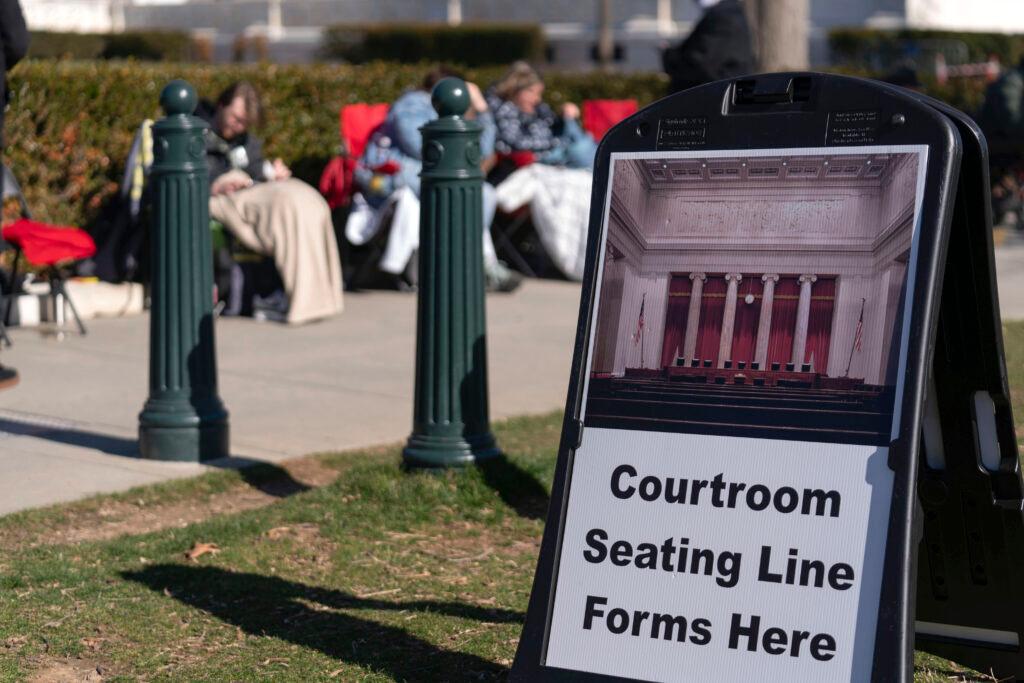
Murray also encouraged the justices to rule broadly on this case, and not let individual states act on their own.
“Ultimately it's this court that's going to decide that question of federal constitutional eligibility and settle the issue for the nation,” he said.
But justices swept that notion aside with worries that a single state could decide an entire presidential election. Murray struggled as the justices pelted him with questions and scenarios — often interrupting each other as they questioned whether disqualifying Trump would lead to state courts and elections officials weaponing Section 3 against presidential candidates they oppose.
“What do you do with the — what would seem to me — to be plain consequences of your position if Colorado's position is upheld?” Roberts asked.
But Murray replied that these are extreme circumstances. “There's a reason Section 3 has been dormant for 150 years and it's because we haven't seen anything like January 6th since the reconstruction. Insurrection against the Constitution is something extraordinary.”
The justices did not discuss whether they view the January 6 attack as an insurrection
One topic the justices did not delve into was whether the attack at the Capitol on January 6th was an insurrection, and how to view Trump’s role in it.
For Kermit Roosevelt, constitutional law professor from the University of Pennsylvania, that was a big indication of what the justices are willing to consider.
“The fact that they didn’t talk much about the insurrection question supports that they’re going to decide on some other grounds,” he said.
Roosevelt filed an amicus brief in support of the Colorado voters on the idea that the constitutional provision is self-executing and the state can enforce it without congressional action. After the arguments Thursday, he had little hope that his argument would prevail.
“I think it’s almost certain that Trump wins this,” he said. “I don’t think the rationale is entirely clear yet.”
This moment is the culmination of a legal theory pushed through articles, op-eds, legal filings and courtroom drama
Articles about how the Insurrection Clause could apply to Trump started popping up almost immediately after the Jan. 6 attack on the Capitol, as historians and legal experts dusted off this rarely used provision as a potential route to punish Trump, should impeachment fail.
Last year, those theories started turning into legal filings, as groups and individuals in various states attempted to use them to keep Trump off their ballots. On Sep. 6, Colorado jumped in, with six Republican and unaffiliated voters filing a lawsuit demanding Secretary of State Jena Griswold not certify Trump for Colorado’s primary ballot.
A liberal watchdog group, Citizens for Responsibility and Ethics, or CREW, in Washington, D.C., spearheaded the effort. CREW successfully used the same argument to block a county commissioner in New Mexico from holding public office after participating in the Jan. 6 attack on the U.S. Capitol.
After that victory, the organization started to approach people in Colorado.
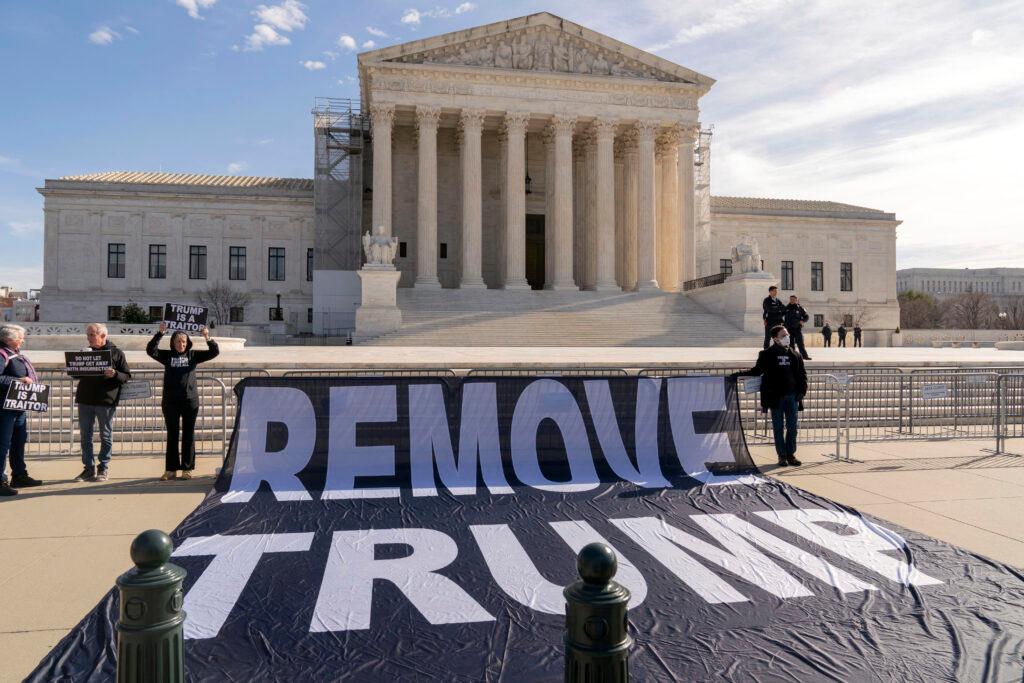
The case got a five-day hearing in Denver District Court, in which the judge heard testimony about the history of the 14th Amendment and Trump’s role in Jan. 6. It’s the only time that of the many challenges filed to Trump’s eligibility has had a full court hearing.
At the time, Trump dismissed the idea that he could be barred under the 14th Amendment, writing in a post on Truth Social, “it is just another ‘trick’ being used by the Radical Left Communists, Marxists, and Fascists, to again steal an Election…”
The Colorado GOP also weighed in, sending a fundraising email branding the people behind the suit as “despicable malcontents” attempting to rob Colorado voters of options on the ballot.
Ultimately, the state court judge in Denver agreed that Trump should remain on the ballot; Judge Sarah Wallace concluded that Trump did engage in insurrection but that it wasn’t clear that the Insurrection Clause applies to the presidency.
Colorado’s Supreme Court rejected that reasoning, concluding in a split 4 to 3 ruling that Section 3 does apply, a ruling lawyers for Trump swiftly appealed to the nation’s highest court.
The Coloradans who brought the case reflected on a historic moment
A number of Coloradans were on hand to attend the arguments.
The state’s solicitor general, Shannon Stevenson, addressed the court, while Republican former Secretary of State Scott Gessler was at the attorney’s table for Trump.
Norma Anderson and Krista Kaefer — two of the original voters on the case — had good seats in the viewing section, as did Secretary of State Jena Griswold and state GOP Chair Dave Williams.

“These ridiculous and novel legal theories to try and engage in election interference are going to be certainly struck down, at least we think so,” said Williams, standing on the court steps after arguments wrapped up. “We respect the independent judiciary and … we feel strongly that we're going to succeed on the merits.”
For her part, Anderson, a former Republican state lawmaker who was outraged by Jan. 6, said she thinks the justices had to be skeptical in their questioning to get to an answer.
Still, if the court rules against her side, "well, that just means we have to work hard to beat Donald Trump" at the ballot box.
As for being in the courtroom, Anderson said the experience was amazing.
"It's exciting for a 91-year-old," she said with a laugh. "A first time — I didn't think I'd have any more firsts."
Previous coverage
- Here are the legal questions the Supreme Court will consider in the case to disqualify Donald Trump
- Interview: ‘The Constitution is clear’ Colorado plaintiff in Trump eligibility case hopes U.S. Supreme Court agrees
- Trump eligibility case has brought new pressures and threats to Colorado’s election workers



